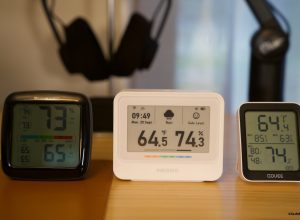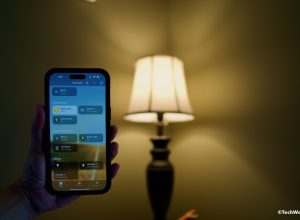Online tracking is a common practice used by virtually every brand, company, and service provider on the internet. The need for more user data has gotten us to this point where service providers like Facebook and Google are tracking your online activities to the last detail.
Facebook and its advertising network use Facebook Pixel to keep track of you across the World Wide Web. Google has more extensive data nodes than that, including your smartphone, your Google Maps activities, and your emails.
Online trackers also use publicly available information such as your IP address, your device fingerprint, and cookies to monitor you as you browse the internet. The more they track you, the more they know about you as a user, and the more accurate their targeting will be.
This is a serious privacy concern with no real solution to implement. The best way to protect yourself from being tracked is by actively avoiding online trackers. Here are some of the creative ways you can avoid trackers when browsing the internet.

Use Multiple Browsers
User agent and device identity are the two most common data points used for online tracking, so it is only logical that you confuse trackers by using multiple browsers. Switching from one browser to another helps minimize your digital footprints.
You can also configure your browsers to better protect yourself. At the very least, you want to activate the Do-Not-Track flag so that legitimate sites don’t track you directly. You can also configure some browsers to hide device fingerprint details.
Besides, you benefit from better performance when using multiple browsers. Despite the internet being open and cross-platform compatible, there are still sites that work better when opened using a particular browser or device.
Proxies for Hiding IP Address
As mentioned before, your IP address reveals a lot about who you are as an internet user. From the IP address you use and your device fingerprint, a web server can learn so much about you. Visiting multiple websites using the same IP address also makes tracking you easier.
A simple way to hide your IP address is by using proxies. Proxy services are getting more advanced and secure, which means they are perfect for the job. What proxies do is basically route your traffic through a dedicated proxy server (or several servers) so that only the proxy IP address is revealed.
You can take it a step further by rotating your proxies regularly. The more you change your IP address, the more difficult it will be to identify you as an internet user. This is a great way to stop websites from collecting granular data about you.
Use Browser Add-Ons
Some browser add-ons are handy for managing your online privacy. User Agent Switcher, for instance, lets you change your user agent on the fly. You can switch from Chrome to Safari for iPhone or other user agents listed by the add-on without restarting your browser.
You can even use different user agents for different browser tabs. This is a handy feature to use when you are browsing multiple sites and you want to remain anonymous. Here’s an added bonus: you can get better promotions or discounts when using certain user agents (i.e. iPhone).
Other add-ons add layers of protection by encrypting all data transmissions, warning you if you are visiting phishing or malicious sites, and making sure that you are not exposed to trackers like Facebook Pixel by blocking them completely.
Watch What You Share
The most important thing to understand about managing your online privacy, however, is to be mindful of what you share online. No matter how good tracking technology gets, it is always your actions as an internet user that reveals a lot.
Your social media posts on Facebook, for example, are used to understand your tendencies, your interests, and other personal details about yourself. If you see an advertisement for a hotel in Singapore after talking about visiting the country with some friends, that’s the result of Facebook’s predictive AI working at its best.
Predictive targeting is the next big thing in this landscape. Tracking is only the beginning; it is the data collection part of the process. Artificial intelligence is now building complete profiles of users based on data nodes that are being tracked by service providers.
Aside from what you share directly, you also want to review what you share unwillingly. Do complete privacy audits, make sure your accounts are configured for maximum privacy and don’t forget to disable tracking whenever possible. Service providers will still try to collect information about you, and you never know how you are tracked across the World Wide Web. The tips and tricks we discussed in this article, however, will help keep you safe – and your online activities private – in most situations. Log out of your Google and Facebook accounts when browsing the internet, and you are all set.
Disclosure: We might earn commission from qualifying purchases. The commission help keep the rest of my content free, so thank you!



